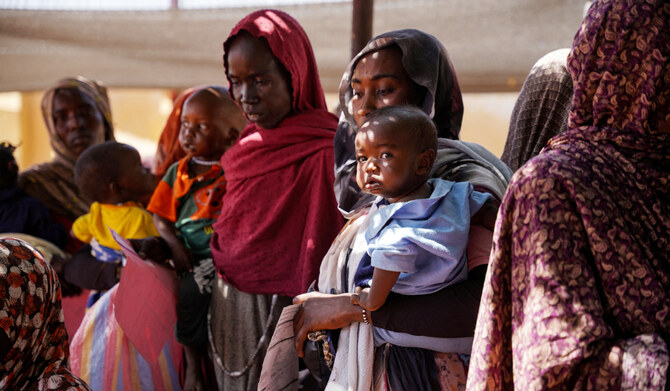KHARTOUM: Fighting in Sudan’s war-torn North Darfur state displaced around “15,000 households” from the town of Al-Malha within 48 hours, the United Nations’ migration agency said Monday.
From Thursday to Friday, the clashes between the paramilitary Rapid Support Forces and the army and its allied militias forced the families to flee “primarily to other locations” within the same area, said the International Organization for Migration.
Since April 2023, the war between the RSF and the army has killed tens of thousands of people, uprooted over 12 million and created the world’s largest hunger and displacement crises.
In North Darfur alone, nearly 1.7 million people are displaced and around two million people face extreme food insecurity, according to UN figures.
The RSF claimed on Thursday to have seized Al-Malha, which lies at the foot of a mountainous region 200 kilometers (124 miles) northeast of the North Darfur state capital El-Fasher.
At least 45 civilians were killed in the attack, according to a toll shared by activists in El-Fasher.
In their statement, the RSF said they had “encircled the enemy... leaving more than 380 dead” in Al-Malha.
The town is one of the northernmost urban centers in the vast desert between Sudan and Libya, where the RSF and an army-allied coalition of armed groups known as the Joint Forces have battled for months.
El-Fasher is the only state capital still under the control of the army, which this week recaptured the presidential palace in Khartoum, some 800 kilometers away.
Following months of army gains in central Sudan, analysts say the RSF is determined to consolidate its hold on Darfur, where the Joint Forces have intercepted key supply lines from Chad and Libya since last year.
North Darfur is facing one of Sudan’s worst mass starvation crises, with famine already declared in three displacement camps around El-Fasher.
According to UN projections, it is expected to spread to five more areas, including the state capital itself, by May.

























